News feed
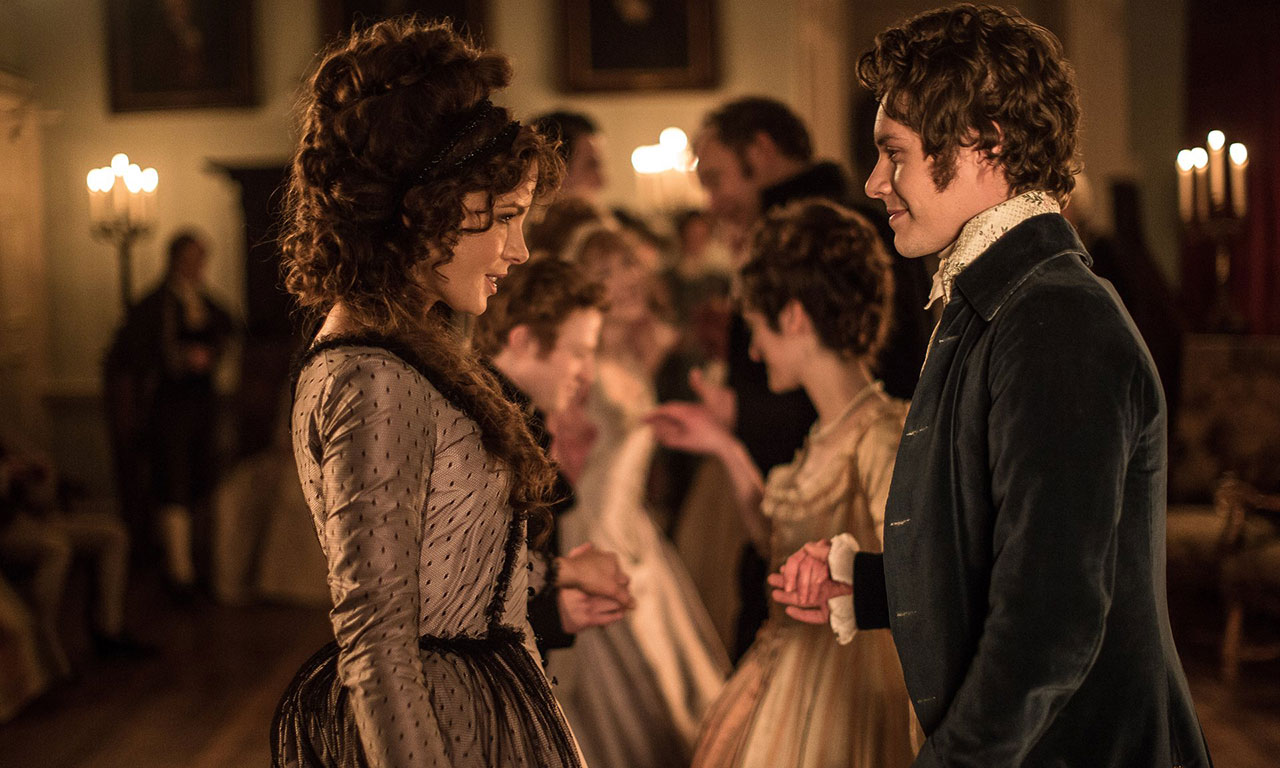
Kate Beckinsale and Xavier Samuel in Whit Stillman’s adaptation of the Jane Austen novella, Love and Friendship
Credit: Supplied
When Whit Stillman made his debut in 1990 with Metropolitan, a garrulous social comedy dissecting the manners and the mores of New York’s ‘Urban Haute Bourgeoisie’ during one particularly eventful débutante season, Xavier Samuel was six-years-old.
Now 32, the Victorian-born actor, who made his own international debut six years ago in The Twilight Saga: Eclipse, still remembers the first time he stumbled across the American auteur’s classic and thought to himself, “‘This looks like quite a smart film, perhaps I’ll learn something.’”
Twenty-six years later and Samuel was given the chance to learn directly from Stillman himself on the latter’s most recent project, Love and Friendship, an adaptation of two little-known and unfinished epistolary novellas, Love and Friendship and Lady Susan, both of which written by Jane Austen in her twenties and published posthumously. The resulting film, also titled Love and Friendship (out now), is nothing short of superb. That a lavish, late 18th century costume drama set on the manicured lawns of British country estates could inspire fits of wicked cackling is testament to both Austen and Stillman’s keen wit and enviable tact when it comes to crafting arch observations about the otherwise rarefied niches and unfamiliar dynamics of very high society.
“You don’t expect it from Austen, do you?” Samuel recently told GRAZIA. “You expect all this romance and sweeping English countryside but it’s more of a manipulation [of social comedy]. The humour comes from the context of the characters being either so manipulative, subversive or naïve. It’s an intelligent film because of that.”
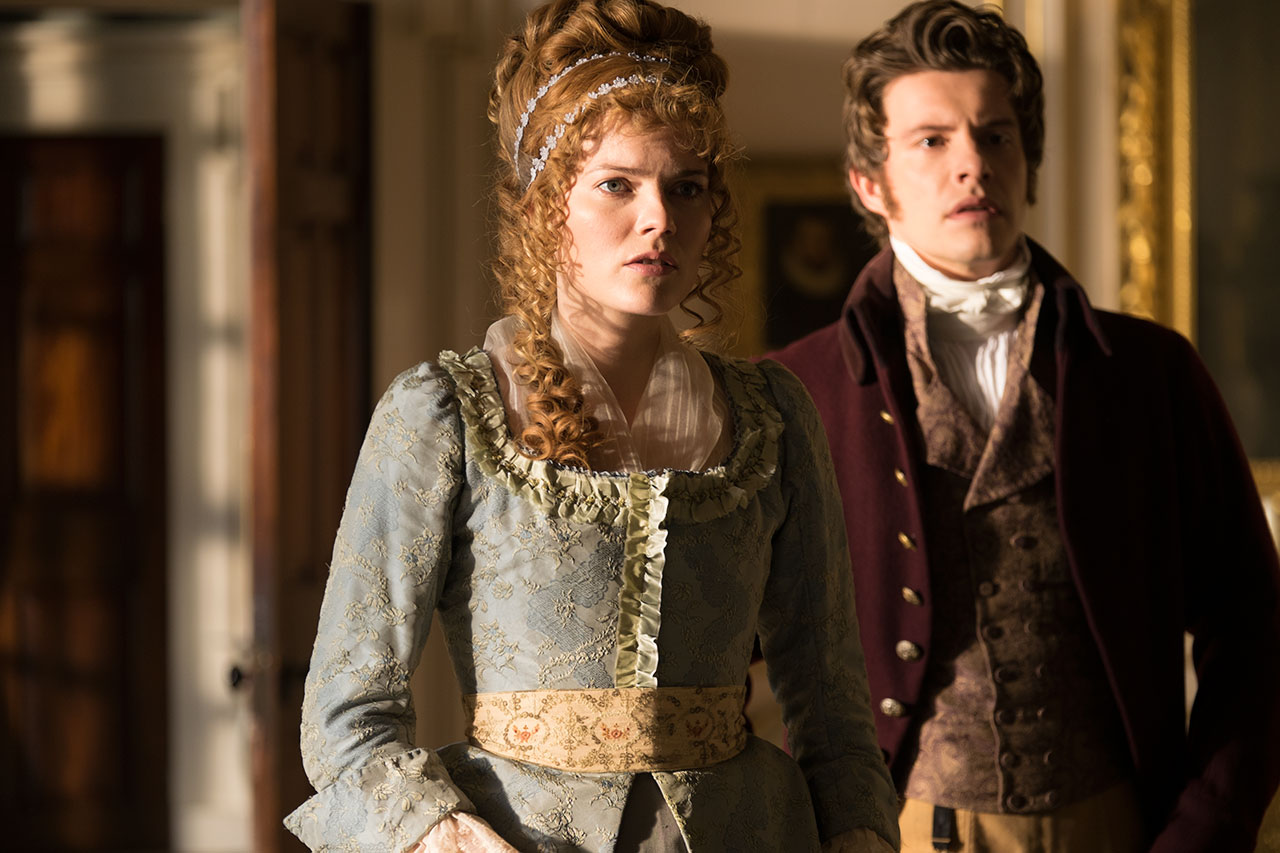
Emma Greenwell and Xavier Samuel in Love and Friendship
Credit: Supplied
Love and Friendship is Stillman’s fifth feature in 26 years, and his second co-starring Chloë Sevigny and Kate Beckinsale after 1998’s iconic The Last Days of Disco. It’s around Beckinsale’s conniving yet infinitely endearing anti-heroine Lady Susan, a widowed and wily mother angling for a pair of wealthy husbands for herself and her daughter, Frederica Vernon, that Love and Friendship revolves. Samuel plays Reginald DeCourcy, the charming brother-in-law of her late husband and the chief object of Lady Susan’s cunning advances as she schemes and plots her way toward a secure future wherein she can have her (wedding) cake and eat it too.
“[Stillman] doesn’t make films very often so to get a chance to work with him was extraordinary,” Samuel recalls fondly. “He’s a very clever writer and he has a meticulous approach to the way he works. He writes as he goes along and continued to write scenes as we were working. It felt like things are happening in a way that’s simultaneously pre-planned and meticulous but also quite collaborative.”
A keen Austen-phile, Stillman’s films and – for many, I suspect – most recent adaptations of Austen’s novels can often feel impenetrable or inaccessible, so highly crafted are the worlds and so mannered is the delivery that the effect often provokes a love-hate response. As a fan of the former who is largely indifferent to the latter (I’m a literary philistine, evidently), what was perhaps most surprising about Love and Friendship was just how fitting and uproariously funny the resulting collision of the two worlds is. Beckinsale’s performance in particular is a masterclass in verbal dexterity and social puppetry. Were the film to receive mainstream success of the kind it arguably deserves but will probably elude it, it’s not hard to imagine her character being anointed with ‘kween’ status and her many searing one-liners affixed with lengthy captions and immortalised in .GIF format. Essentially, Stillman’s script is the star that allows Beckinsale to shape and steal every scene.
The English actor and Samuel in particular share a palpable chemistry and a great deal of screen time as Stillman’s script eventually gathers momentum and Lady Susan’s machinations begin to take effect, particularly where Samuel’s hapless DeCourcy is concerned. Having both enjoyed their dalliances with the undead (Beckinsale in the Underworld films and Van Helsing; Samuel in the Twilight franchise), I asked Samuel if Beckinsale taught him anything about navigating the perils of swapping swordplay – or perhaps more appropriately, stake play – for wordplay. He responds that while “each presents their own challenges”, Love and Friendship provided a welcome return of sorts to the challenges they both love about their craft.
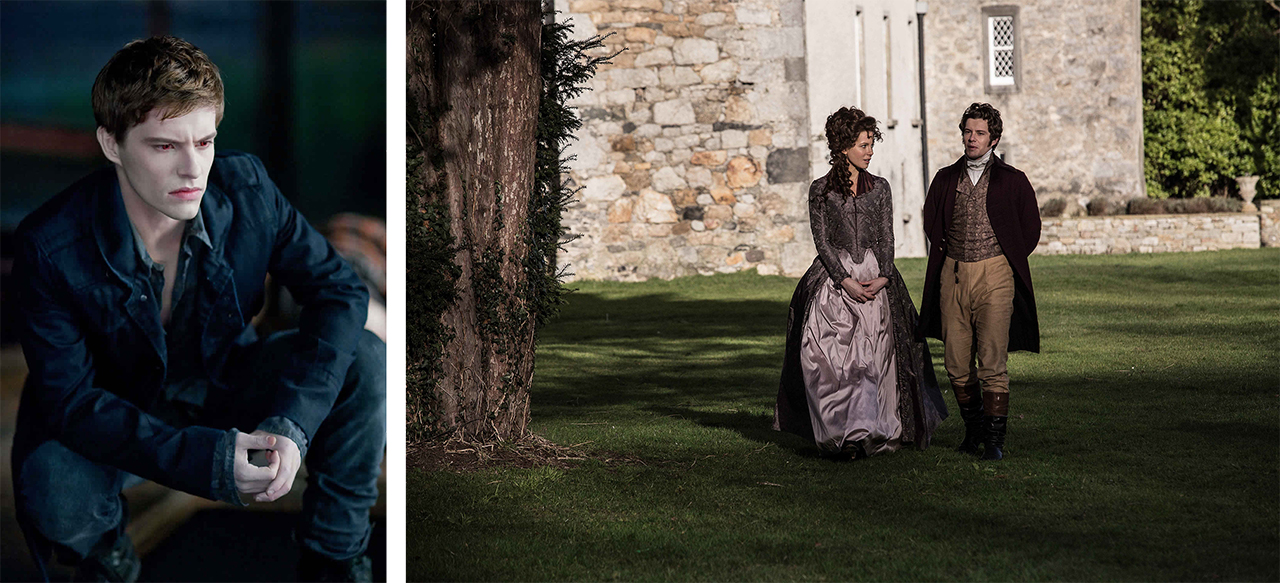
At left, Samuel as Riley Biers in The Twilight Saga: Eclipse and opposite Kate Beckinsale in Love and Friendship
Credit: Supplied
“Watching [Beckinsale] operate in the way she does – she has such a command of language and that naturally raises the bar. Before we started, I met Joan Washington, who is a dialect coach, and really worked with her to get to the bottom of the way that people at that time spoke. There’s a kind of George Bernard Shaw or Oscar Wilde element to the film where snappy, witty exchanges occur that you don’t normally think of when you think of Austen.
“There’s an element of formality that that finds its way on set, but you do kind of drop it when one of the biggest challenges is keeping a straight face.”
Maintaining composure would’ve surely been no mean feat in a film that boasts an ensemble cast including the wonderfully acerbic Sevigny (who also starred and will eventually feature in the followup series to Stillman’s Amazon Original pilot for The Cosmopolitans), Stephen Fry, James Fleet and, perhaps most charmingly, Tom Bennett, whose delight at chasing peas (“tiny green balls!”) around his plate is as infectious as it is sublimely idiotic.
“He’s just so silly, and a brilliant fool” Samuel remarked of his co-star Bennett. “It took a whole afternoon to shoot his scenes because we couldn’t keep a straight face. I don’t even think Whit could keep a straight face because of the humour he brought to that role.”
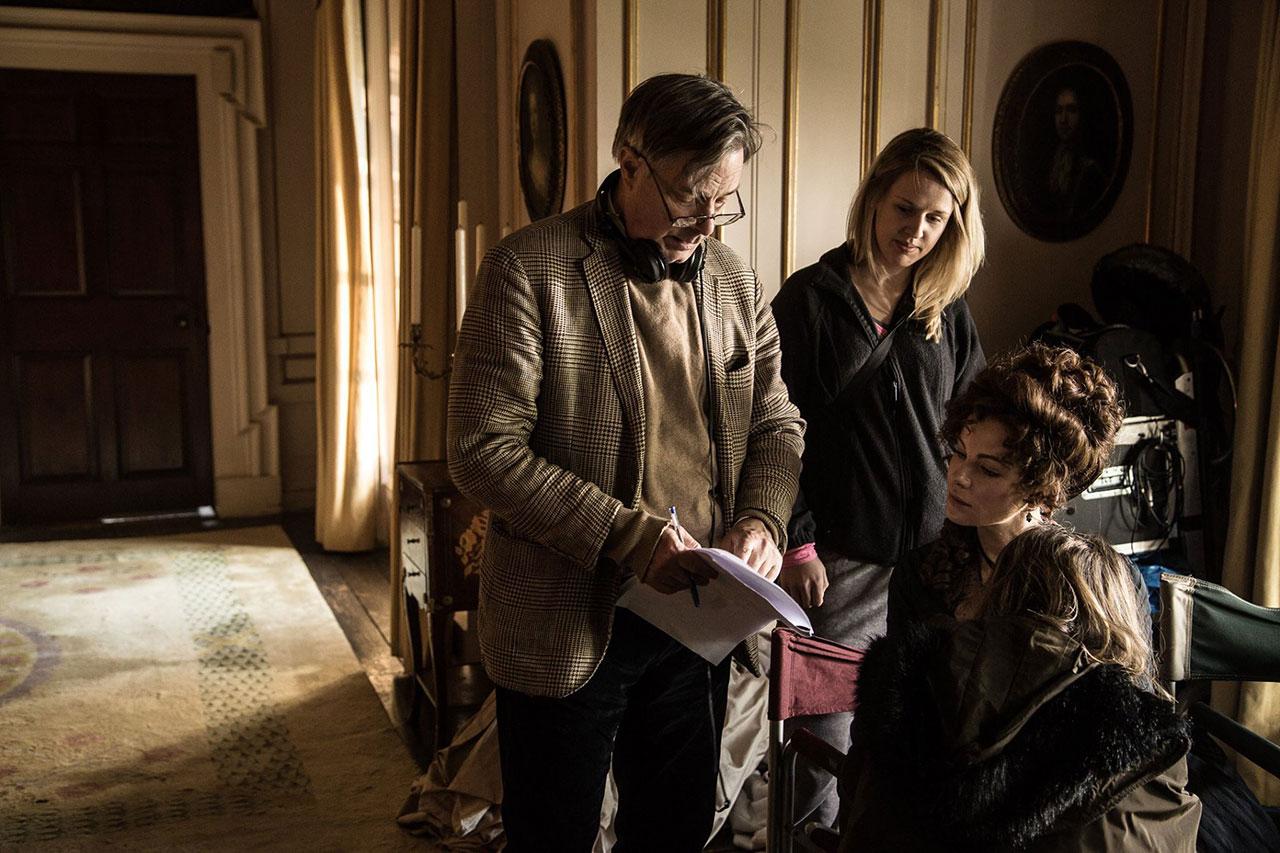
Whit Stillman pictured on set opposite Kate Beckinsale
Credit: Supplied
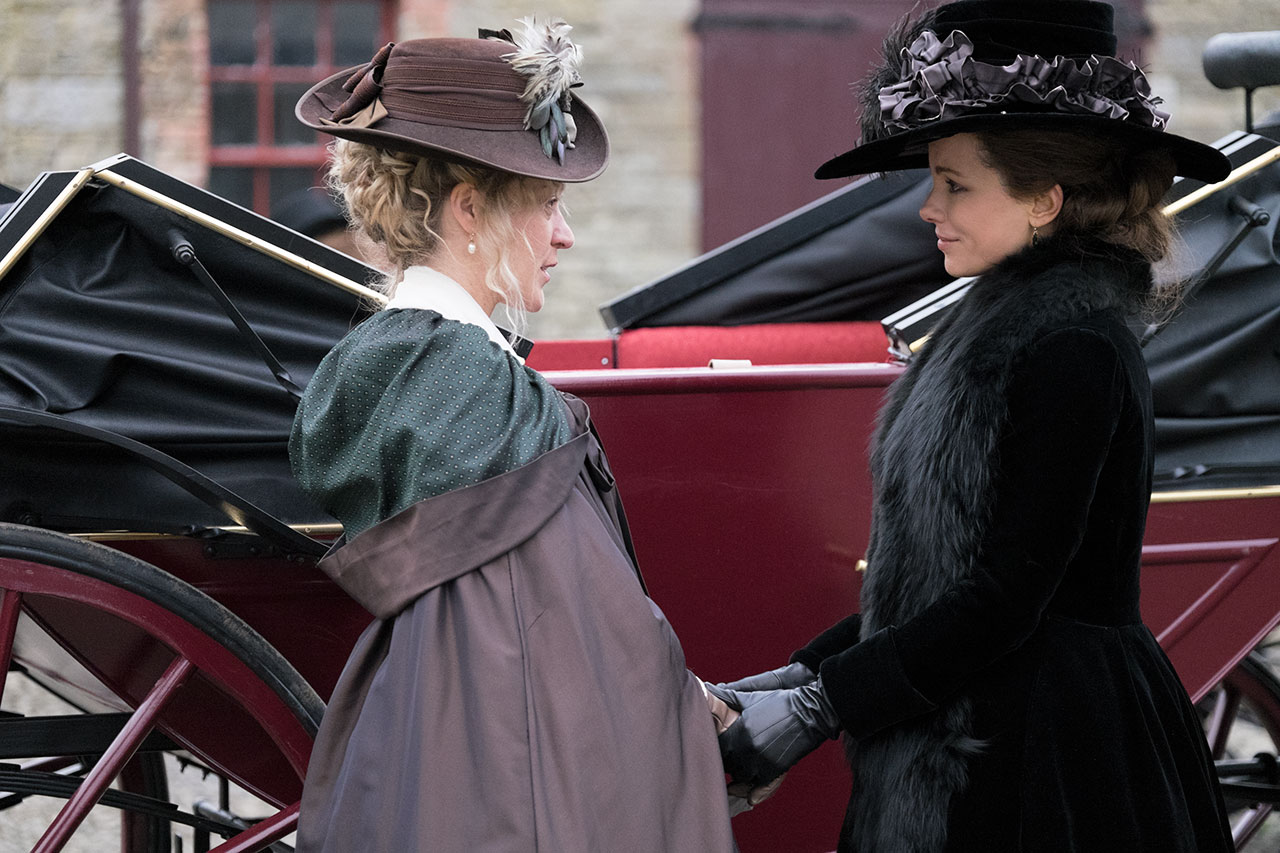
Chloë Sevigny and Kate Beckinsale in a scene from Love and Friendship
Credit: Supplied
As for what he finally learned from working with Whitman, a neat conclusion of the kind enjoyed by DeCourcy proves more than a little evasive for Samuel.
“It’s hard to define what exactly it is that you learn from each experience. [Stillman] has such a unique sensibility, it’s not something that’s easy to define. He inspires a kind of trust that you’re in the company of someone very clever and in such good hands. You sort of absorb the entirety of the experience and then take it forward so that your artillery is more equipped for the next gig.”
Samuel’s next role is that of the titular star in The Death and Life of Otto Bloom, the directorial debut for Cris Jones. Otto Bloom had its premiere at the Melbourne International Film Festival last week and Samuel describes it as “a love story” with an almost “Charlie Kaufmann script” executed within “a fantastical, documentary framework” about a man “experiencing time in reverse, not in a Benjamin Button way but in a way that he has already experienced time in the future.
“Just trying to wrap your head around that meant I had to sit down and drill him with questions like, ‘What’s his relationship with spontaneity?’ and, ‘If we’re going to improvise something, how do you improvise something you’ve already experienced?’”
I ask Samuel that if he too could experience time in reverse, what would he do differently knowing now what he does about his love for his craft and his career to date, which culminated most recently in 18 months spent working on diverse Australian productions including a Banjo Paterson biopic, Banjo & Matilda, Bruce Beresford’s Mr. Church as well as comedies based on a Bachelors and Spinsters ball and the sequel to 2011’s A Few Best Men. “That’s a great question,” he starts out before pausing for a beat. “I think I’d… do less interviews [laughs].
“I think there’s a tendency to look at things really objectively as an actor coming straight out of drama school. You want to pull everything apart and giving every scene an arc. The process of getting up, and the activity that happens between then and arriving on set and finding yourself in front of the camera [gives you] an overwhelming desire to do something and put too much sauce on it. I think that would it be: [I’d tell myself] to relax and not overthink things too much.”
Despite the daily rigours and extra-curricular demands his craft, Samuel appears to be in no danger of losing the frisson of excitement that first lured him into acting when, at 15-years-old, he appeared in an after-hours adaptation of the Steven Berkoff play West directed by his high school drama teacher. He remembers it as one of the first in a series of moments where “you’re shown a room [and] you go, ‘Oh, I could live in there.’” The challenge now, as always, is to find something to subvert in each project, be it an Austen adaptation or a comedy about rural B&S balls. As long as the opportunities keep coming, Samuel says he’ll take them and run with them. Failing that, he’ll create his own.
“I’d love to at some point but [directing] is not something I’m grooming myself for. My brother Benedict is an actor as well and, when we both lived in Sydney in a share house, that was sort of the culture of sitting around and talking about [script] ideas, like ‘Wouldn’t it be cool if we could make this film? Or make this story?’ And sometimes you feel like the closer that becomes to reality, the more exciting idea [it is].”
Until that day, Samuel says he’ll continue working toward the goal of becoming “a less blocked actor. You’re always striving for a place where you can tear down all the blocks and operate in a place that’s sort of free,” and perhaps more aptly, aspiring to “hold onto the friendships that I have.
“Great friends could withstand silence for an eternity and you could still pick up where you left off. I’m lucky in that sense. [I want] to maintain the curiosity of life – that’s a good aspiration to have I think.”
Tile and cover image: Supplied courtesy of Love and Friendship










